Brexit: What would no deal mean for Ireland’s economy?
- Published
- comments
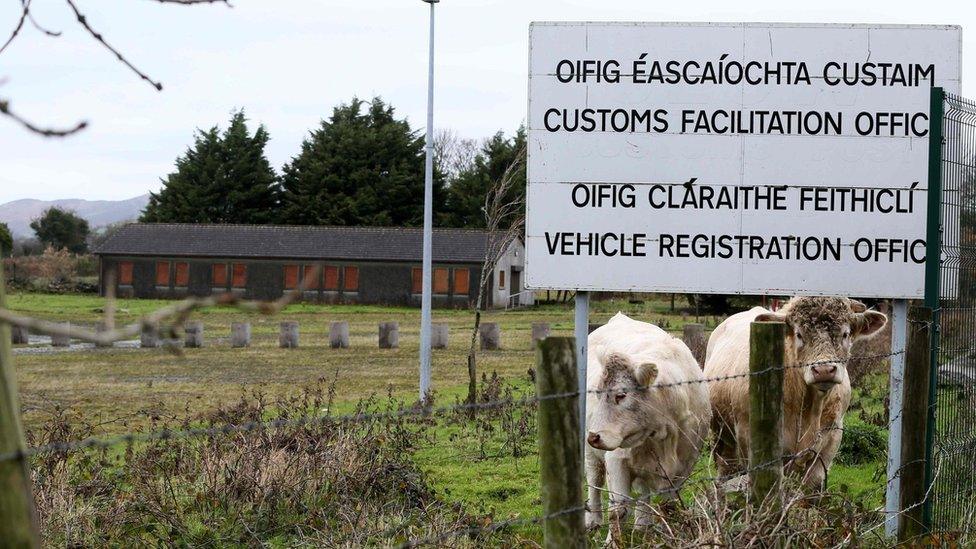
The Irish government has been clear that a no trade deal Brexit would cause the country significant economic damage.
Forecasts by bodies like the Fiscal Advisory Council suggest that it would reduce growth by 5% - 7% over the next 10 years, compared with a scenario where the UK stayed in the EU.
The Central Bank suggests that over the medium term, 100,000 fewer jobs would be created in the economy.
The country's agrifood sector would see the biggest impact from no deal.
As talks continue on a possible UK-EU trade deal before the 31 December deadline, Taoiseach (Irish prime minister) Micheál Martin said a no-deal scenario "would be very bad news for all of us".
Mr Martin added that failure to reach an agreement would represent "an appalling failure of statecraft" on both sides.
Why would Ireland be damaged?
The UK and Ireland are major trading partners and a no-deal Brexit would disrupt that trade through the imposition of tariffs (taxes on imports) and other barriers.
It is important to keep this trade relationship in perspective.
The UK is not Ireland's biggest export market and has not been for years.
Ireland's growth as a manufacturing centre for pharmaceuticals and medical devices has made its exports more globalised.
The US is actually the largest external market, taking 28% of all goods exported in 2018.
But the UK is number three, after Belgium.
In 2018, 11% of Ireland's goods exports, worth €16bn (£14.7bn), were sold to the UK.
About 30% of those exports are in the agrifood sector with chemicals and machinery the next largest sectors.
Red meat producers are particularly exposed -about 50% of Ireland's beef exports by value are sold in the UK.
These food exports would face steep tariffs in England, Scotland and Wales in the event of no deal (tariff-free trade with Northern Ireland will continue).
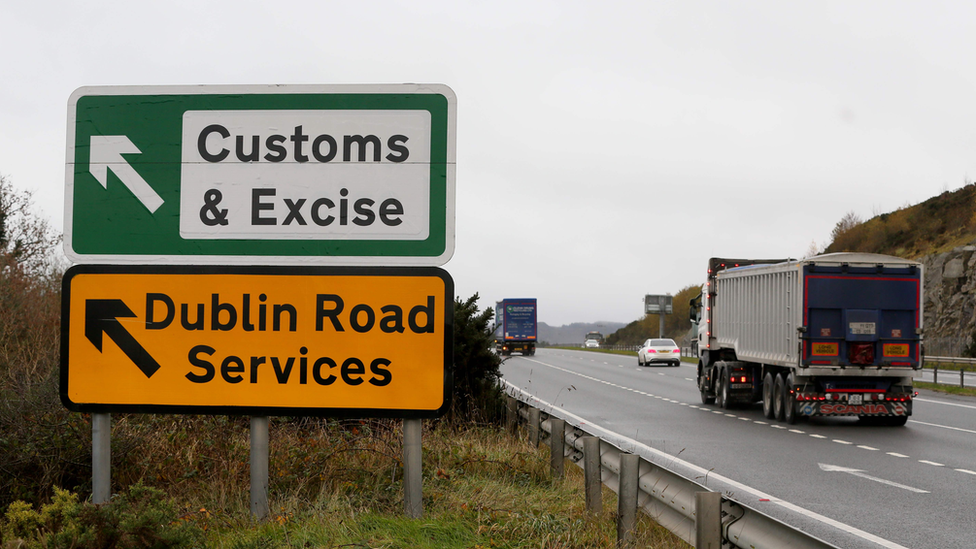
The Irish Farmers Journal has warned: "Irish beef producers will have a major problem if there is no trade deal and it will become a problem for the entire EU very quickly."
It said that if Irish beef was effectively priced out of Britain then it would "inevitably" flood the EU market.
The journal suggested the EU may have to take "exceptional measures" as a result perhaps even closing its market to non-EU beef as an interim measure.
Damage to the UK trading relationship may also be concentrated among smaller firms.
Research by Ireland's Central Statistics Office (CSO), carried out in 2017, suggested that among large businesses that export, only 1% are solely dependent on the UK market, but for small businesses it is 26%, and among micro-business exporters it is 68%.
However, for some of those smaller businesses, their UK exports may only be going to Northern Ireland so will continue to have tariff-free access.
But in a no-deal Brexit it seems likely that most of the damage would be to Irish-owned small and medium-sized exporters, particularly in rural areas.
Imports also matter: Ireland imported €20bn (£18.3bn) of goods from the UK in 2018, more than from any other country.
In a no-deal, some of these goods would also face tariffs that could increase prices for Irish consumers and input costs for some manufacturers.
What about the 'land bridge'?
Exports don't tell the whole story of the UK's importance to Irish trade.
Every year about €18bn (£16.5bn) worth of Irish goods pass through the UK on the way to other EU markets.
This route, via the UK road and ports network, is known as the land bridge.
It is particularly important for high-value or time-sensitive goods because it offers faster transit times than alternative sea routes.
A study by the Irish Maritime Development Office, external, published in 2018, suggested the land-bridge route from Dublin to Calais takes approximately 20 hours, while direct ferry services from Ireland to the continental EU can take twice as long.
But even with a deal there are likely to be delays at English Channel ports so there has been a big increase in direct sailings from Ireland to the continent.
For example Rosslare Europort, on the south-east coast, will have six sailings a week to both Cherbourg and Dunkirk and twice a week to Bilbao.
This will still be a problem for the most time-sensitive products but the new services will at least provide certainty that goods can still move to the wider EU.
What are Ireland's contingency plans?
The Irish government has been preparing for a long time.
It has been running information roadshows for businesses, often led by cabinet ministers, since September 2018.
Various grant and loans schemes have been made available for companies to pay for professional advice and develop new markets.
No-deal Brexit legislation was passed in February last year creating continuity in areas such as pensions and benefits, cross-border rail services and the all-island single electricity market.
New border posts have been built at ports which handle UK trade and hundreds of new staff hired to run them.
The Northern Ireland Protocol, a special deal between the EU and UK, keeps the border with Northern Ireland as it is now and solves what was potentially a huge political, security and economic issue for Ireland.
But the most recent version of the government's action plan, external warns people not to expect plain sailing.
"The scale and interconnectedness of the EU-UK relationship mean we cannot entirely eliminate the possibility of disruption," it reads.
"Even with all the work that has been done, there will be severe disruption."


This story was first published on 29 July 2019 and updated on 13 December 2020.
- Published13 December 2020
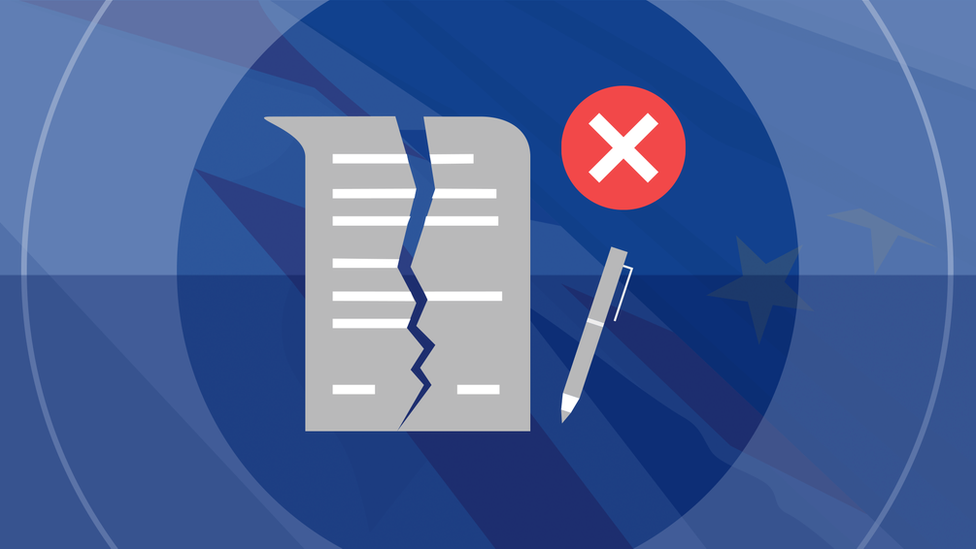
- Published12 December 2020
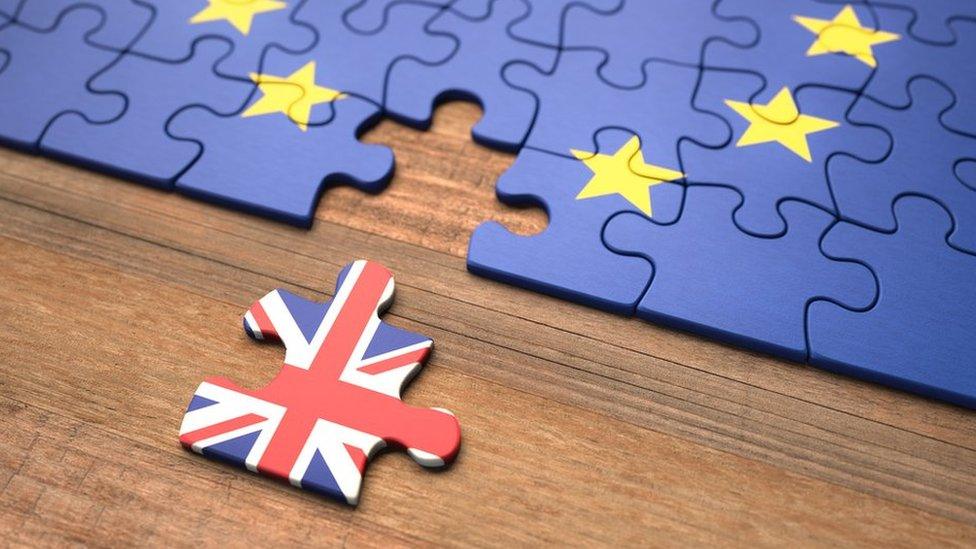
- Published13 December 2020
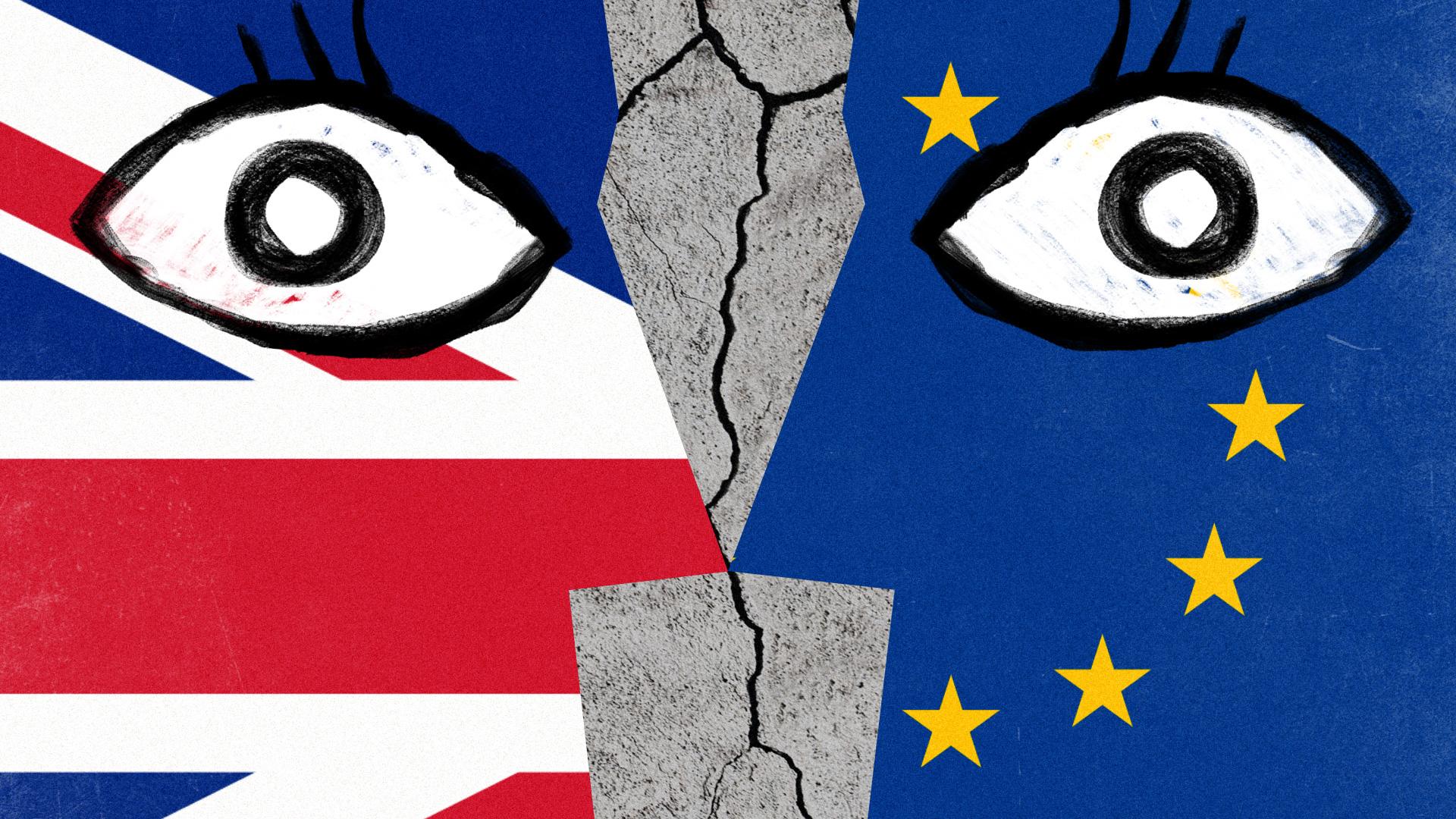
- Published11 December 2020
